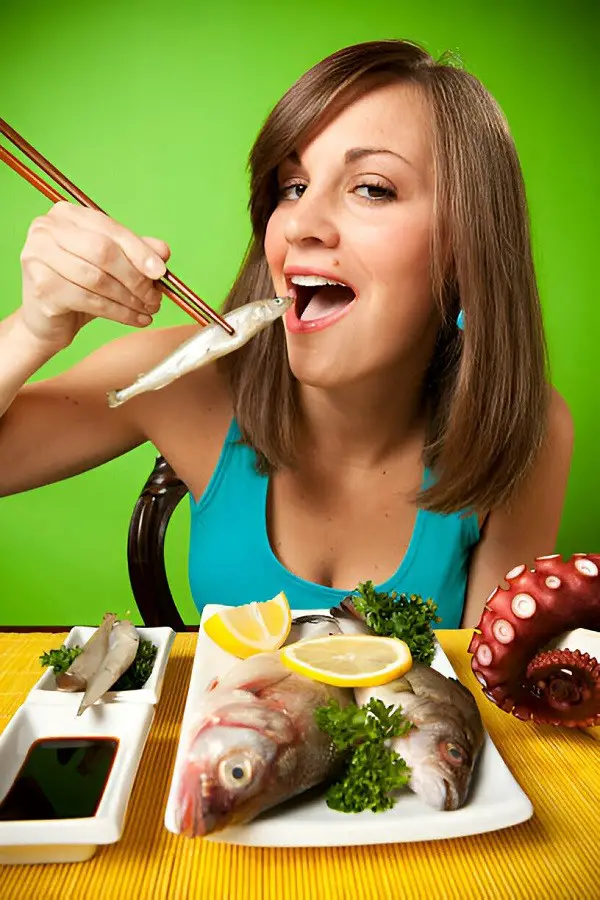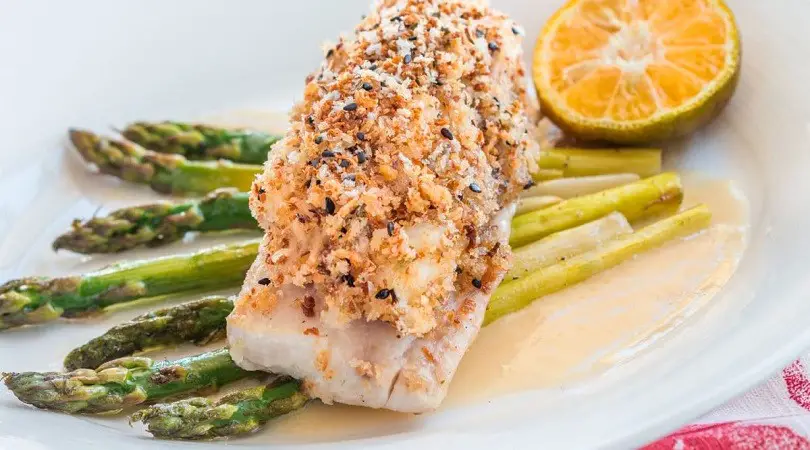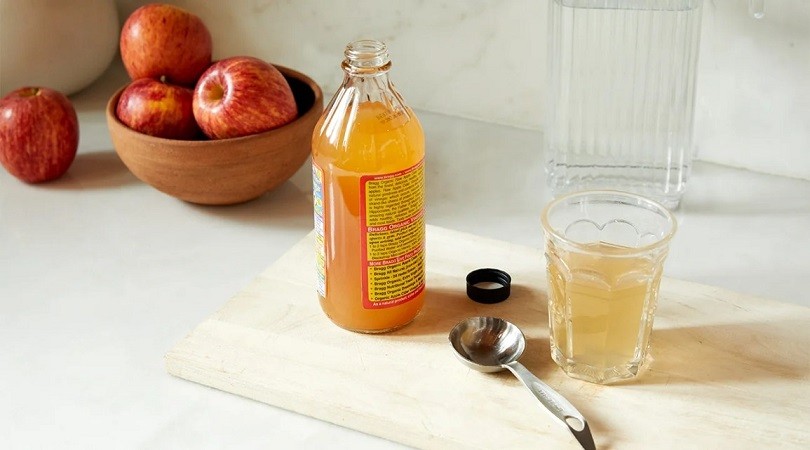Last Updated on January 6, 2025
Yes, it is safe to eat Mahi Mahi during pregnancy as it is a low-mercury, high-protein fish. Mahi Mahi, also known as dolphinfish or dorado, is a safe and nutritious choice for pregnant women.
This popular saltwater fish is not only low in mercury, but is also rich in high-quality proteins, vitamins, and minerals. Its firm texture and mild flavor make it a versatile ingredient in various dishes. Pregnant women can benefit from its nutrient profile, which includes omega-3 fatty acids, vitamin B12, and selenium.
However, it is important to ensure that the Mahi Mahi is fresh, properly cooked, and sourced from a reputable supplier to reduce the risk of foodborne illnesses.

Benefits Of Consuming Mahi Mahi During Pregnancy
Mahi mahi is a safe and nutritious choice during pregnancy, offering essential nutrients like Omega-3 fatty acids and protein. Adding this fish to your diet can support the development of your baby’s brain and promote a healthy pregnancy.
Can You Eat Mahi Mahi During Pregnancy?
Mahi Mahi, also known as dolphinfish, is a delicious and versatile fish commonly enjoyed by seafood lovers. But what about during pregnancy? Is it safe to consume Mahi Mahi while carrying a baby? In this blog post, we will explore the benefits of consuming Mahi Mahi during pregnancy, so you can make an informed decision about including it in your diet.
High In Omega-3 Fatty Acids
Omega-3 fatty acids are essential for the healthy development of your baby’s brain and eyes. Mahi Mahi is an excellent source of these beneficial fats, making it a great choice to incorporate into your pregnancy diet. Here are the benefits of its high omega-3 content:
- Supports brain development: The omega-3 fatty acids in Mahi Mahi help in the formation of your baby’s brain cells, promoting healthy cognitive development.
- Enhances eye health: Omega-3s also play a crucial role in eye development, ensuring optimal visual function for your little one.
Excellent Source Of Protein
Protein is an important nutrient for the growth and development of your baby. Mahi Mahi is packed with protein, which offers the following benefits:
- Supports tissue development: Protein is the building block of cells, tissues, and organs. Consuming Mahi Mahi can provide your growing baby with the necessary proteins for their development.
- Boosts energy levels: During pregnancy, it’s common to feel fatigued. The protein content in Mahi Mahi can help increase your energy levels, keeping you active throughout the day.
Rich In Essential Nutrients
In addition to omega-3 fatty acids and protein, Mahi Mahi contains a variety of essential nutrients that are beneficial during pregnancy. These include:
- Vitamin B-6: This vitamin aids in the production of red blood cells and supports your baby’s brain development.
- Potassium: Mahi Mahi is a good source of potassium, which helps maintain healthy blood pressure levels and supports proper muscle and nerve function.
- Niacin: Also known as vitamin B-3, niacin aids in digestion and plays a role in the healthy growth of your baby.
Incorporating Mahi Mahi into your pregnancy diet can provide you and your baby with a range of nourishing benefits. However, it’s crucial to ensure that the fish is cooked thoroughly to eliminate any potential risk of foodborne illnesses. As always, consult with your healthcare provider before making any significant changes to your diet during pregnancy.
Remember, enjoying Mahi Mahi in moderation, as part of a balanced diet, can be a healthy and flavorful addition to your meals while expecting.
Potential Risks And Concerns
Mahi Mahi is generally safe to eat during pregnancy, but there are some potential risks and concerns to be aware of. It is important to ensure that the fish is fresh, properly cooked, and sourced from reputable suppliers to minimize the risk of foodborne illnesses and mercury contamination.
Pregnant women should consult their healthcare provider for personalized advice.
Mahi Mahi, also known as dolphin fish or dorado, is a popular choice for seafood enthusiasts. However, when it comes to consuming it during pregnancy, there are certain factors you should consider. In this section, we will explore the potential risks and concerns associated with eating Mahi Mahi while pregnant.
Mercury Contamination In Mahi Mahi:
Mercury contamination is a common concern with many types of fish, including Mahi Mahi. Here’s what you need to know:
- Mahi Mahi is considered to be a low-mercury fish, which means it contains lower levels of mercury compared to high-mercury fish like swordfish and king mackerel.
- However, it is still important to moderate your intake since mercury can be harmful to the developing fetus.
- The Food and Drug Administration (FDA) recommends that pregnant women limit their consumption of low-mercury fish to no more than two servings per week.
- Monitoring your overall fish consumption by including a variety of low-mercury options can help minimize the risk of mercury exposure.
Allergenic Reactions:
Allergies are another potential risk factor when considering Mahi Mahi consumption during pregnancy. Here’s what you should know:
- Mahi Mahi is not commonly associated with allergies, but it is essential to be aware of any existing fish allergies you may have.
- If you have a history of fish allergies or allergies to other seafood, it is best to consult with your healthcare provider before consuming Mahi Mahi.
- An allergic reaction during pregnancy can negatively impact both the mother and the developing baby, so it’s essential to exercise caution and prioritize safety.
Proper Preparation And Cooking Methods:
Properly preparing and cooking Mahi Mahi can help reduce any potential risks. Consider the following tips:
- Ensure that the Mahi Mahi you purchase is fresh and of good quality. Look for firm flesh and a mild smell.
- Thoroughly cook the fish to eliminate any harmful bacteria or parasites. The FDA recommends cooking fish to an internal temperature of 145°F (63°C).
- Avoid consuming raw or undercooked Mahi Mahi, as it may increase the risk of foodborne illnesses.
- If you’re unsure about the safety or quality of the fish, it’s always best to err on the side of caution and avoid consuming it.
Remember, even though Mahi Mahi is generally considered safe for consumption during pregnancy, it is crucial to consume it in moderation, taking into account the potential risks and concerns mentioned above. Consulting with your healthcare provider before making any dietary changes is always advised.
Safe Consumption Guidelines
Discover safe consumption guidelines for eating Mahi Mahi during pregnancy. Ensure a healthy diet by understanding the safety and nutritional benefits of including this fish in your prenatal meal plan.
Choosing Fresh and High-Quality Mahi Mahi:
- Opt for fresh mahi mahi that has been properly stored and refrigerated to ensure its quality and safety.
- Look for fillets or steaks that are firm, moist, and have a mild, slightly sweet aroma. Avoid purchasing fish that smells strong or offensive.
- Check the packaging or labels for the origin and harvest date of the mahi mahi to ensure its freshness.
- If possible, buy from reputable fishmongers or trusted sources that follow strict quality control measures.
Moderation is Key:
- While mahi mahi is generally safe to eat during pregnancy, it is important to consume it in moderation.
- The key is to maintain a balanced and varied diet that includes a wide range of other nutritious foods.
- Limit your mahi mahi consumption to two to three servings per week to avoid excessive exposure to mercury and other potential contaminants.
- Remember that fish, including mahi mahi, is a valuable source of omega-3 fatty acids and other essential nutrients, but it should not be the sole focus of your diet.
Avoiding Raw or Undercooked Mahi Mahi:
- It is crucial to ensure that mahi mahi, like any other fish, is cooked thoroughly before consumption during pregnancy.
- Raw or undercooked fish may harbor harmful bacteria and parasites that can pose risks to both you and your baby.
- Cook mahi mahi until it reaches an internal temperature of 145°F (63°C) to ensure that any potential contaminants are eliminated.
- Avoid dishes such as sushi, ceviche, or sashimi that involve consuming raw or partially cooked mahi mahi.
Remember to always consult with your healthcare provider or a qualified professional for personalized advice and guidance regarding your diet during pregnancy. By following these safe consumption guidelines, you can enjoy mahi mahi in a way that supports a healthy and well-balanced pregnancy diet.

Alternatives To Mahi Mahi
Discover delicious and safe alternatives to Mahi Mahi for pregnant women. Explore a variety of seafood options that can be enjoyed during pregnancy without any concerns.
Pregnancy-Safe Fish Options
Eating fish during pregnancy can provide essential omega-3 fatty acids and other nutrients that promote your baby’s development. However, certain types of fish may contain high levels of mercury, which can be harmful to your baby’s neurological development. If you’re wondering whether you can safely enjoy Mahi Mahi during pregnancy, it’s best to err on the side of caution and consider alternative fish options.
Here are some pregnancy-safe fish options to include in your diet:
- Salmon: Rich in omega-3 fatty acids and a great source of protein, salmon is a popular choice for pregnant women. Choose wild-caught salmon to avoid potential contaminants.
- Rainbow Trout: This mild-tasting fish is low in mercury and high in vitamin D and protein. It’s a versatile fish that can be baked, broiled, or grilled.
- Sardines: These small, oily fish are packed with omega-3s, calcium, and vitamin D. Opt for canned sardines packed in water to reduce sodium intake.
- Shrimp: Low in mercury and high in protein, shrimp is a tasty seafood option during pregnancy. Be sure to cook them thoroughly to eliminate any potential bacteria.
- Tilapia: With its mild flavor and low mercury content, tilapia is a safe choice for pregnant women. It’s also a good source of protein and contains essential nutrients like selenium and vitamin D.
While Mahi Mahi can be enjoyed in moderation if it’s sourced from low-mercury areas, these alternative fish options offer a safer choice for ensuring a healthy pregnancy.
Plant-Based Protein Sources
If you prefer to avoid seafood altogether during your pregnancy or follow a vegan or vegetarian diet, there are plenty of plant-based protein sources that can provide the nutrients you need. Consider incorporating the following options into your meals:
- Lentils: High in protein, fiber, and folate, lentils are a versatile legume that can be used in soups, salads, and various dishes.
- Quinoa: This grain-like seed is a complete protein, meaning it contains all nine essential amino acids. It’s also a good source of iron and fiber.
- Tofu: Made from soybeans, tofu is an excellent source of protein and contains essential minerals like calcium and iron. Experiment with different cooking methods and flavoring to make it more appealing.
- Chickpeas: Also known as garbanzo beans, chickpeas are rich in protein, fiber, and folate. They can be used in salads, roasted as a snack, or blended into hummus.
- Beans: Whether it’s black beans, kidney beans, or pinto beans, legumes are a nutritious source of plant-based protein. They’re also high in fiber, iron, and folate.
Including a variety of these plant-based protein sources in your diet can help ensure you meet your nutritional needs during pregnancy while avoiding fish altogether.
Nutritional Balance During Pregnancy
Pregnancy is a crucial time to focus on maintaining a balanced and nutrient-rich diet to support both your health and your baby’s development. Here are some tips to help you achieve nutritional balance:
- Eat a variety of fruits and vegetables: Aim for a colorful plate filled with different fruits and vegetables to ensure an array of vitamins, minerals, and antioxidants.
- Choose whole grains: Opt for whole grain options such as whole wheat bread, brown rice, oats, and quinoa, which provide more fiber and nutrients compared to refined grains.
- Include dairy or dairy alternatives: Dairy products like milk, cheese, and yogurt are good sources of calcium and protein. If you’re lactose intolerant or follow a vegan diet, choose plant-based alternatives fortified with calcium.
- Stay hydrated: Drink plenty of water throughout the day to support healthy blood circulation, digestion, and overall health.
- Limit processed foods: Minimize your intake of processed and packaged foods that may be high in added sugars, sodium, and unhealthy fats.
By following these tips and incorporating a variety of pregnancy-safe fish options or plant-based protein sources into your diet, you can create a well-balanced and nutritious eating plan to support a healthy pregnancy journey.
Expert Opinions And Recommendations
Mahi Mahi, also known as dolphin fish, is generally considered safe to eat during pregnancy due to its low mercury content. However, it is still advisable to consume it in moderation and ensure it is cooked thoroughly to minimize any potential risks.
Expert opinions recommend consulting with your healthcare provider to assess your individual circumstances and make informed dietary choices during pregnancy.
Can You Eat Mahi Mahi During Pregnancy?
Mahi Mahi, also known as dolphinfish, is a delicious and popular seafood choice among many people. But when it comes to pregnancy, it’s important to consider whether or not it is safe to consume. In this section, we will explore expert opinions and recommendations regarding the consumption of mahi mahi during pregnancy.
Advice From Medical Professionals
- According to medical professionals, consuming mahi mahi during pregnancy is generally considered safe and recommended due to its rich nutritional content. However, there are a few considerations to keep in mind.
- Mahi mahi is a good source of lean protein, omega-3 fatty acids, vitamins, and minerals, which are all important for supporting the healthy growth and development of both the mother and the baby.
- It is important to ensure that mahi mahi is fresh, properly cooked, and sourced from reputable suppliers to avoid the risk of foodborne illnesses, such as mercury contamination.
- Pregnant women should limit their intake of certain types of fish, including those high in mercury, which can be harmful to the developing fetus. Mahi mahi is considered a low-mercury fish, making it a safer choice compared to some other seafood options.
Prenatal Dietary Guidelines
- The American Pregnancy Association recommends consuming 8-12 ounces (about two to three servings) of low-mercury fish, such as mahi mahi, per week during pregnancy.
- It is advisable to avoid consuming raw or undercooked mahi mahi during pregnancy, as it may harbor bacteria or parasites that can cause foodborne illnesses.
- Grilling, baking, or broiling mahi mahi until it reaches an internal temperature of 145°F (63°C) is recommended to ensure it is safe to eat.
- To further reduce any potential risks, pregnant women can consult their healthcare providers for personalized dietary recommendations based on their health conditions or concerns.
Personalized Considerations
- Every pregnancy is unique, and certain factors such as allergies, dietary restrictions, or specific health conditions may require personalized considerations. It’s essential to consult with a healthcare provider or a registered dietitian for individualized advice.
- If you have a known allergy or sensitivity to seafood, it is best to avoid consuming mahi mahi or any other type of fish during pregnancy.
- If you experience any discomfort, adverse reactions, or concerns after consuming mahi mahi or any other food, it is crucial to seek medical attention promptly.
Mahi mahi can be safely included as part of a healthy and balanced pregnancy diet. However, it is vital to follow the advice of medical professionals, adhere to prenatal dietary guidelines, and consider any personalized considerations to ensure the well-being of both the mother and the baby.
Remember to prioritize consuming fresh, properly cooked mahi mahi, and consult with healthcare providers for personalized recommendations.
Frequently Asked Questions
Is Mahi Mahi High In Mercury?
Yes, mahi mahi can be high in mercury. (11 words)
What Fish To Avoid While Pregnant?
Avoid high-mercury fish during pregnancy. They include sharks, swordfish, king mackerel, and tilefish.
What Kind Of Fish Can I Eat While Pregnant?
You can eat low-mercury fish like salmon, trout, and shrimp while pregnant.
What Fish Are High In Mercury While Pregnant?
Certain fish high in mercury should be avoided while pregnant, such as sharks, swordfish, and king mackerel.
Can You Eat Mahi Mahi During Pregnancy?
Yes, you can safely consume Mahi Mahi during pregnancy as it is low in mercury and a good source of important nutrients like protein and omega-3 fatty acids.
Conclusion
Adding Mahi Mahi to your pregnancy diet can provide a range of nutritional benefits. This flavorful fish is an excellent source of lean protein, omega-3 fatty acids, and important nutrients like vitamin B12 and selenium. These nutrients play a vital role in supporting your baby’s growth and development, as well as maintaining your health during pregnancy.
However, it’s crucial to ensure that the Mahi Mahi is fresh, properly cooked, and sourced from a reputable supplier to minimize the risk of contaminants. If you have any concerns or underlying health conditions, it is always best to consult with your healthcare provider before incorporating Mahi Mahi or any other seafood into your pregnancy diet.
By making informed choices and enjoying Mahi Mahi in moderation, you can savor its delicious taste while promoting a healthy pregnancy.











